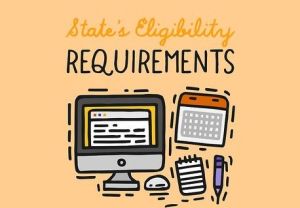
“For I will forgive their wickedness and will remember their sins no more.” Hebrews, 8:12
But, will the government as well?
In 2021 Governor Tony Evers announced several changes to the state’s pardon process, including a new direct application for non-violent offenders. Those who have committed non-violent felonies can now have their applications sent directly to the Governor’s desk, bypassing the Pardon Advisory Board, if enough time has passed since the crime was committed.
Additionally, a new application is being issued which expands pardon eligibility to ensure individuals who have completed all their sentences after five years have passed. Previously, individuals could only be pardoned for their most recent felony.
A total of 337 pardons were issued by Gov. Tony Evers during his first three years in office, the largest number of any Wisconsin governor in contemporary history. Evers stated that the pardons give “a second chance to folks who’ve made amends and paid their debt to society.” He added that “these individuals have recognized and acknowledged their past mistakes, and this sends a powerful message of redemption as each of them work to build a brighter future for themselves and their communities.”
 What is a pardon?
What is a pardon?
A pardon is a grant of forgiveness from the Governor for a state criminal conviction that can restore some rights and privileges and relieve certain legal disabilities. A pardon does not mean that a conviction is expunged, erased, vacated, or sealed. Expungement, by contrast, is granted by a court. See Wis. Stat. § 973.015. Wisconsin has a Pardon Advisory Board to review requests and make recommendations to the Governor.
What are my rights?
An individual convicted of a felony loses a number of civil rights. In Wisconsin, some civil rights are returned upon completion of a criminal sentence, including the right to vote and to serve on a jury. This is not the case in all states. However, other rights for convicted felons require a pardon, including firearm rights and the right to hold public office.
 What do I need to know about eligibility?
What do I need to know about eligibility?
To be eligible for a pardon you must meet the following criteria:
· The pardon must be for a felony conviction.
· The original sentence must have been
completed in its entirety at least five years
before the pardon application is made. This
includes all confinement as well as supervised release, such as probation, parole, or
extended supervision.
· The pardon seeker cannot be facing or have been convicted of any criminal offense in any
jurisdiction since completing her/his sentence.
· The individual is not currently required to register as a sex offender under Wis. Stat.
§301.45.
In addition to meeting the above criteria, there is a fairly lengthy application process that must be completed. In addition to answering specific questions, the following information must accompany the application for each crime for which a pardon is sought:
· A certified copy of the criminal complaint
· Certified information for each crime
· The certified judgment of conviction
· Letters of recommendation
· Other relevant documents
Meeting the above criteria and providing necessary information provides eligibility to be considered for a pardon, but by no means guarantees that a pardon will be granted.
 What are the procedures for getting a pardon?
What are the procedures for getting a pardon?
After the petition and supporting documents are filed, and an applicant is determined to be eligible—a process that can take months based on the volume of requests—individuals seeking a pardon are scheduled to appear before the Pardon Advisory Board for a pardon hearing. This is a public hearing at which pardon seekers and their legal representatives can appear, and they will be asked questions about the crime or crimes committed, their rehabilitation efforts, and why they believe they deserve a pardon. After the hearing before the Pardon Advisory Board, it makes recommendations to Governor Evers.
After accepting recommendations from the Pardon Advisory Board, the Governor may grant a pardon. A pardon may be conditional or unconditional. Unless a special waiver is granted, pardons are not granted for misdemeanors.
Pardons do not erase the crime from a person’s record, but they do restore some rights such as the right to vote, hold certain professional licenses, or hold public office.
If you believe you are a candidate for a pardon the process can be a daunting one. At Jones Law Firm we can help. If you or someone you know is in need of help with the pardon process contact us today to set up a free consultation. Please contact us by text or phone at (414) 775-7445 or email at laura@jlfwisconsin.com anytime.
*Any articles in the Libra or posted by Jones Law Firm LLC are not legal advice for a particular client or situation. Further no attorney-client relationship is intended or created with this post.*

